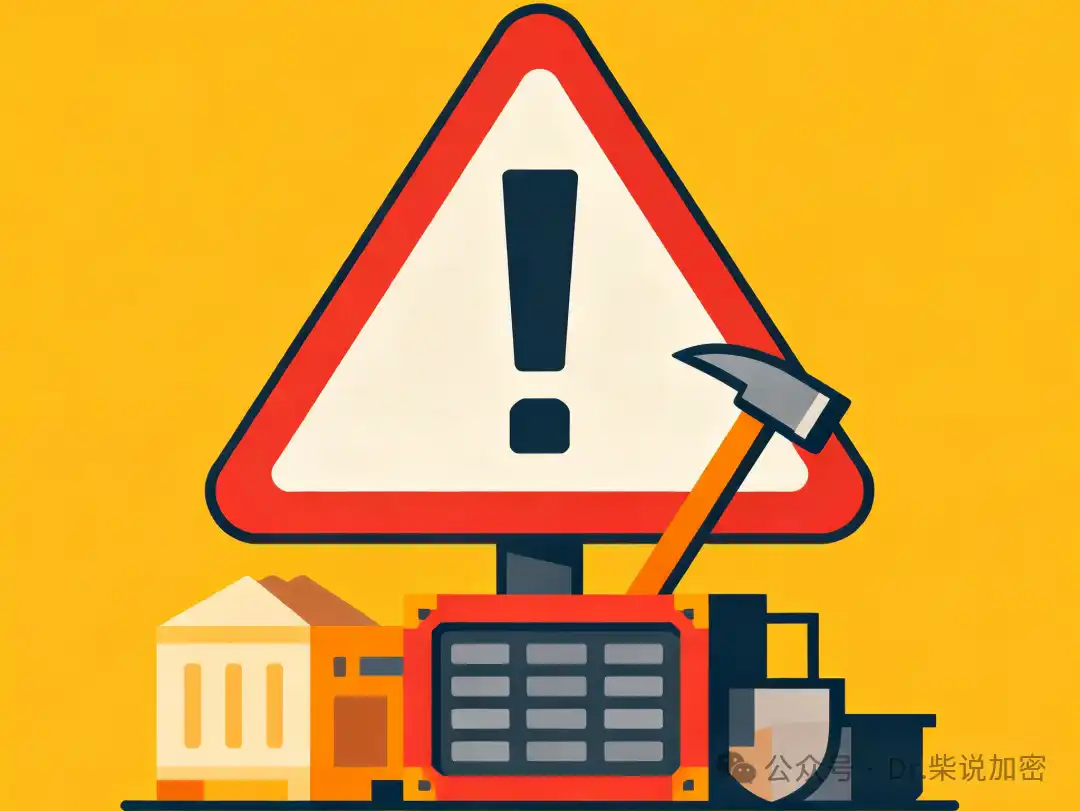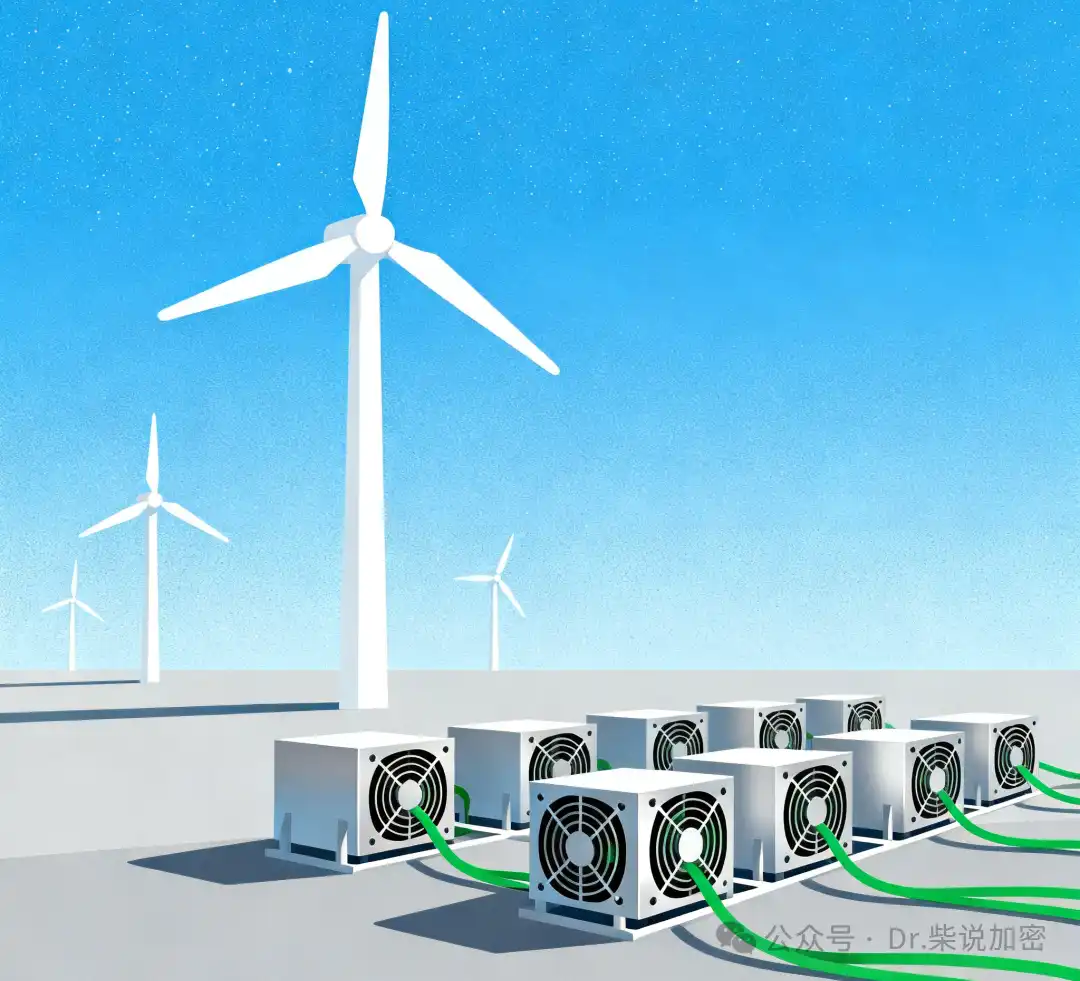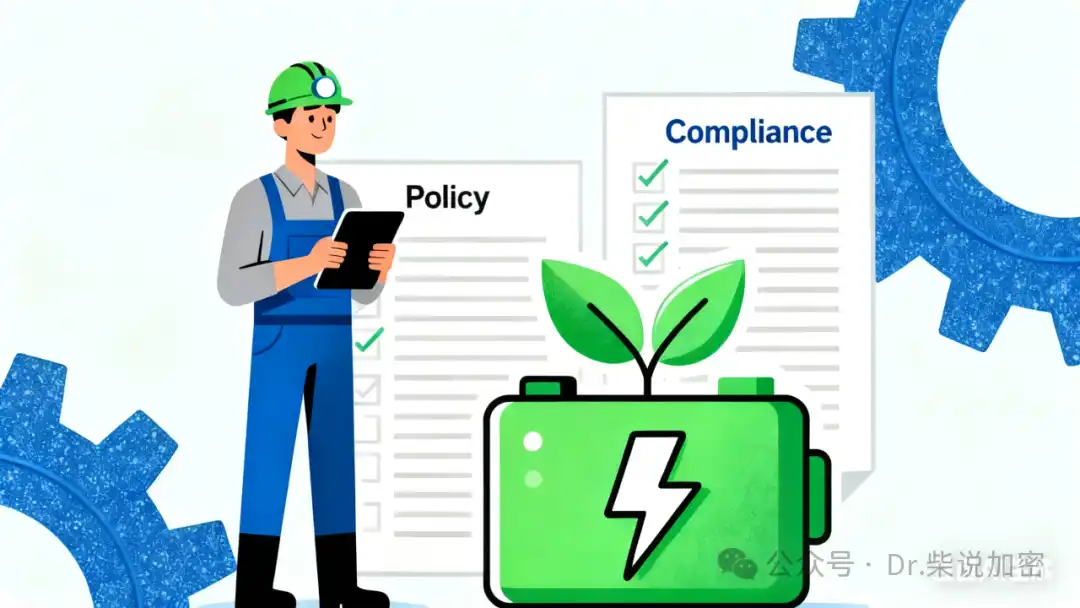Original Title: Is Mining Legal? A Global Overview of Regulatory Frameworks
Original Author: Dr. Chai Talks Crypto
Cryptocurrency Mining and Regulation: Why Should We Pay Attention?

Cryptocurrency mining verifies blockchain transactions through computational power, ensuring network security and earning cryptocurrency rewards. The scale of mining varies from home GPUs to large mining farms, but issues such as high energy consumption and noise have drawn global regulatory attention. In 2025, the regulatory environment is complex and ever-changing: some countries (like Texas, USA) support mining for economic growth, while others (like Iran) have imposed a complete ban due to environmental and financial risks.
Everyday Metaphor

Mining is like extracting gold from a mine; the yield of gold (cryptocurrency) is tempting, but the "mining farm" must comply with local laws, such as environmental permits and noise control, or it may face fines or shutdowns.
Regulatory Focus
Energy Consumption: Bitcoin consumes a massive amount of electricity, sparking environmental controversies.
Noise Pollution: The noise from large mining farm fans disturbs residents, leading to community complaints.
Financial Compliance: Taxation, anti-money laundering (AML), and transparency requirements are becoming increasingly stringent.
Current Legality of Mining Worldwide

Globally, the legal status of mining is not uniform. Some countries view it as an opportunity for economic innovation and actively formulate policies to attract miners; others choose to restrict or even ban it due to energy pressures, financial risks, or environmental concerns.
United States: There is no federal ban on mining, but there are significant state-level differences. Texas has become a hub for miners due to low electricity prices and open policies, while New York has implemented transitional restrictions on mining that uses fossil fuels. Arkansas passed a special law in 2023 to protect miners' rights, but in 2024 added new noise and permit requirements, restricting some foreign enterprises.
Europe: The EU is particularly concerned about the energy consumption of mining, recommending member states gradually reduce related electricity use and eliminate tax incentives for miners.
Canada: With its hydroelectric resources, Canada has become one of the ideal mining locations. However, some provinces have set electricity quotas and price controls to prevent impacts on residential electricity use.
Russia: In 2024, legislation officially recognized the legality of cryptocurrency mining and established a licensing, taxation, and regulatory system.
Kazakhstan: Long attracted miners due to low electricity prices, Kazakhstan has gradually improved its licensing and tax systems, setting differentiated tax rates based on electricity sources.
Countries like Iran and Bolivia have adopted strict restrictions or outright bans, primarily due to energy shortages and financial security concerns.
Main Regulatory Concerns

Energy and Environment: The high energy consumption of mining has sparked global discussions, especially in regions reliant on coal power. Green energy mining is encouraged, while high-carbon energy mining faces strict limitations.
Noise and Community Impact: The noise generated by large mining farms has even become a catalyst for lawsuits from residents, with some state governments requiring mining farms to use noise reduction equipment.
Licensing and Compliance: Many countries require miners to obtain operating licenses and comply with regulations regarding electricity use, safety production, and tax reporting.
Tax Policies: Different jurisdictions handle mining income differently. The U.S. treats mining income as revenue and imposes income tax, with capital gains tax applicable upon sale; Kazakhstan employs a progressive tax system linked to electricity prices; Canada offers tax incentives for green mining.
Legal and Compliance Issues for Home Miners

While regulation is mainly focused on large facilities, home miners should also pay attention to local regulations. In some areas, excessive electricity use may trigger higher rates or violate residential regulations. Additionally, noise, heat, and electrical safety issues can easily lead to neighborhood disputes. Compliance practices include: monitoring energy consumption reasonably, improving heat dissipation and sound insulation, and using official channels to obtain equipment and software.
Taxation on Mining Income

Tax policies on cryptocurrency mining income vary by country:
United States: Income is treated as revenue and taxed at fair market value (30%+), with capital gains tax (15-20%) applicable upon sale.
Canada: Green mining receives tax benefits, with a 10% income tax reduction in Quebec in 2025.
Kazakhstan: Progressive tax rates, with green energy enjoying a discount of $0.0024/kWh.
Russia: A new law in November 2024 requires businesses to pay taxes, with personal income reporting.
Additionally, home miners should keep records of their income and are advised to use third-party services to automatically track tax data to avoid penalties.
Licensing and Clean Energy

In the United States, most states treat mining activities as regular business operations, requiring miners to apply for business licenses and fulfill tax obligations according to federal and state laws. Income must be reported at fair market value upon acquisition. Furthermore, in some states with tighter energy consumption, governments may impose additional review requirements on mining facilities, such as energy efficiency standards and emission limits.
The new laws introduced in Russia in 2024 are particularly representative. The law explicitly states that all mining enterprises must obtain official licenses and are subject to dual regulation by the government and the central bank.
At the same time, environmental impact assessments (EIA) are becoming an important part of global mining compliance. Especially in regions that place a high value on sustainable development, new mining sites often need to submit reports on energy consumption, carbon emissions, noise levels, and more, and must pass independent reviews before commencing operations. This not only raises the entry barriers for the industry but also encourages miners to adopt clean energy and energy-efficient equipment more actively.
In recent years, the mining industry has been gradually shifting towards clean energy: in North America, some mining farms are directly connected to wind and solar power plants; in Northern Europe and Siberia, miners utilize hydropower and natural cooling environments to reduce energy consumption; in the Middle East and Central Asia, surplus electricity from new energy generation is also being introduced into mining, improving energy efficiency.
Conclusion

The regulatory framework for cryptocurrency mining in 2025 presents a "multi-centered" characteristic: some countries support and establish clear frameworks, while others choose bans due to energy or financial risks. Future trends may include supporting green mining, strengthening energy consumption regulation, and improving licensing and tax systems.
Green mining's clean energy not only helps miners reduce long-term costs but also improves the industry's image, aligning with the global trend of green development. This transformation is becoming a key direction for the sustainable development of the mining industry.
For miners, staying updated on local policies and ensuring compliance has become a necessary course for long-term survival in this industry.
免责声明:本文章仅代表作者个人观点,不代表本平台的立场和观点。本文章仅供信息分享,不构成对任何人的任何投资建议。用户与作者之间的任何争议,与本平台无关。如网页中刊载的文章或图片涉及侵权,请提供相关的权利证明和身份证明发送邮件到support@aicoin.com,本平台相关工作人员将会进行核查。


